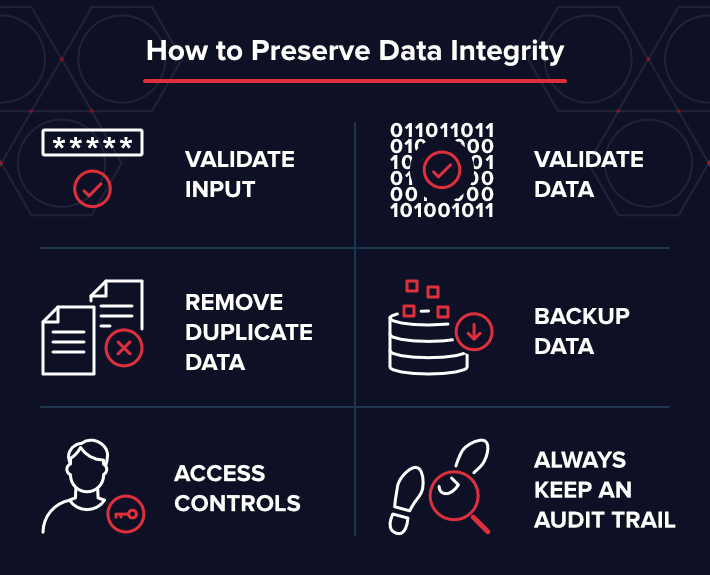A Case for Data Integrity

A strong case for data integrity can be made based on its critical role in ensuring the accuracy, reliability, and trustworthiness of data. Here are several key reasons why data integrity is essential:
1. Informed Decision-Making:
- Importance: Decision-makers rely on accurate and reliable data to make informed choices.
- Case: Inaccurate or inconsistent data can lead to flawed analyses and decision-making, potentially causing financial losses, operational inefficiencies, or strategic missteps.
2. Operational Efficiency:
- Importance: Reliable data contributes to smooth and efficient business operations.
- Case: Inconsistent or incomplete data can lead to errors in processes, delays, and disruptions in workflows, affecting overall operational efficiency.
3. Customer Trust and Satisfaction:
- Importance: Customers trust organizations that demonstrate the ability to manage and protect their data accurately.
- Case: Data breaches, errors, or inconsistencies can erode customer trust, leading to dissatisfaction, loss of business, and reputational damage.
4. Regulatory Compliance:
- Importance: Many industries are subject to regulations that mandate data accuracy and security.
- Case: Non-compliance with data integrity requirements can result in legal consequences, fines, and damage to the organization's reputation.
5. Risk Mitigation:
- Importance: Accurate data helps identify and mitigate risks effectively.
- Case: Inaccurate financial data, for example, can lead to misleading risk assessments, impacting financial stability and regulatory compliance.
6. Efficient Decision-Support Systems:
- Importance: Decision support systems rely on accurate and consistent data for meaningful insights.
- Case: Inaccurate data fed into analytics systems can generate incorrect reports and analyses, leading to misguided business strategies.
7. Supply Chain Management:
- Importance: Data integrity is crucial for tracking and managing the supply chain efficiently.
- Case: Inconsistent inventory data, for instance, can result in stockouts or overstock situations, impacting supply chain performance.
8. Healthcare and Patient Safety:
- Importance: In healthcare, data integrity is vital for patient safety and treatment decisions.
- Case: Errors or inconsistencies in patient records can lead to incorrect diagnoses, treatment plans, and medication administration.
9. Data Sharing and Collaboration:
- Importance: Organizations often share data with partners, suppliers, or other stakeholders.
- Case: Inconsistent data can lead to miscommunications, misunderstandings, and inefficiencies in collaborative efforts.
10. Brand Reputation:
- Importance: Data breaches or incidents of inaccurate data can damage an organization's brand reputation.
- Case: News of data integrity failures can lead to negative public perception and loss of trust.
Conclusion:
In summary, data integrity is not just a technical requirement but a fundamental aspect of organizational success. It underpins effective decision-making, operational efficiency, regulatory compliance, and customer trust. Organizations that prioritize and invest in maintaining data integrity are better positioned to navigate the complexities of the modern data-driven landscape and build a foundation for sustainable growth and success.
Thank you.
